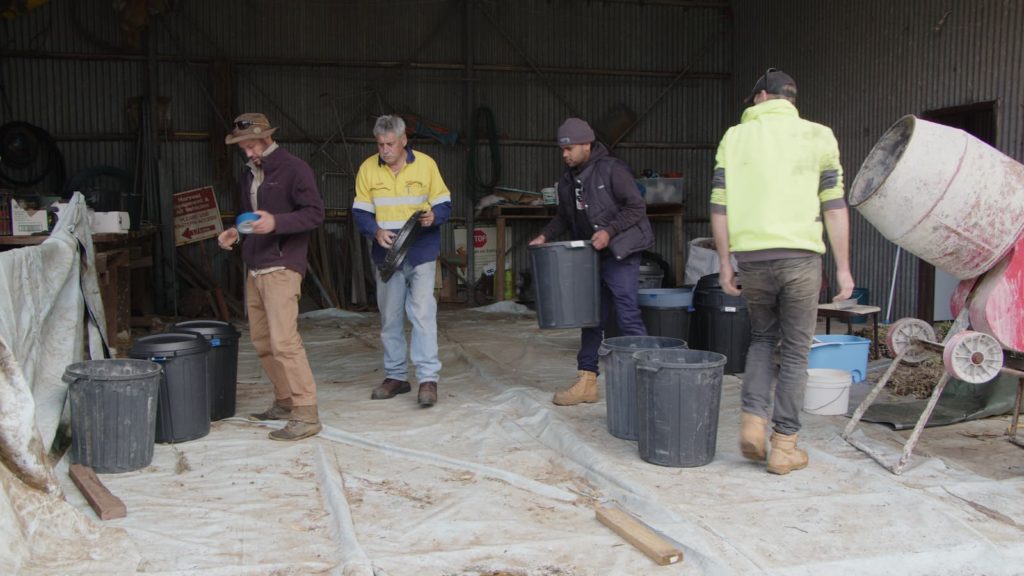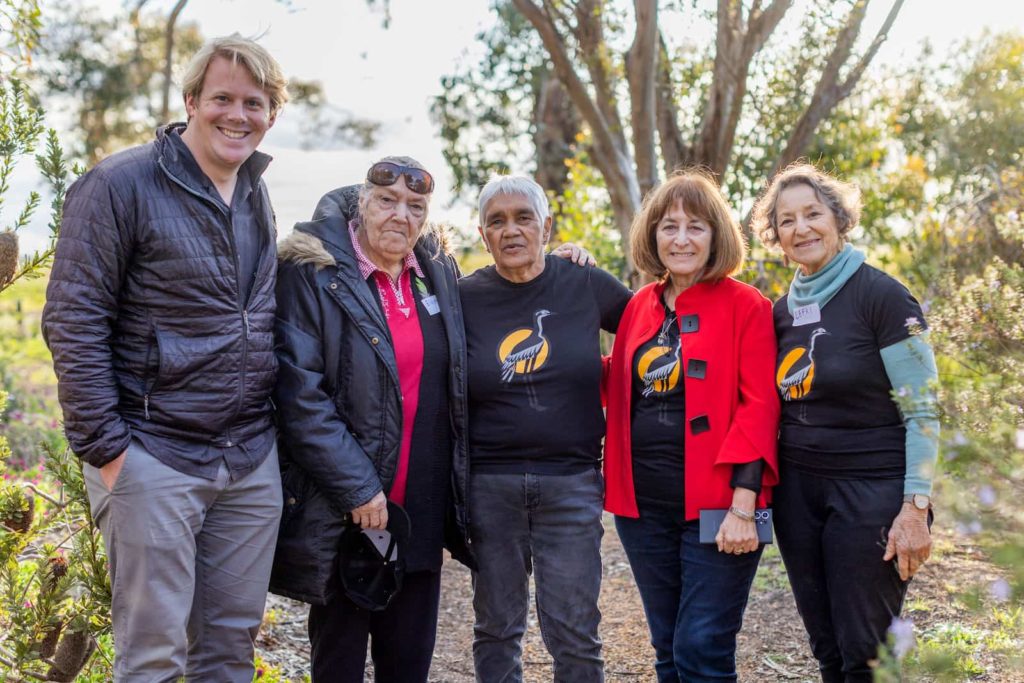Ambitious new plan taking shape at Wilyun Pools Farm
January 2025
Sylvia Leighton: I’d like to explain the wonderful transition that Wilyun Pools Farm is undergoing right now. My partner Peter McKenzie and I have been involved in the landcare movement since the 1990s. One important ethos promoted at that time encouraged sustainability through building a healthy balance between environment, society, economy and culture. After purchasing the 1190-hectare farm from my parents ten years ago, Peter and I have always tried to operate Wilyun Pools Farm under that umbrella of sustainability, and we were fortunate to be awarded the WA Landcare Farmers award in 2021 and the Australian Landcare Farmers award in 2022.
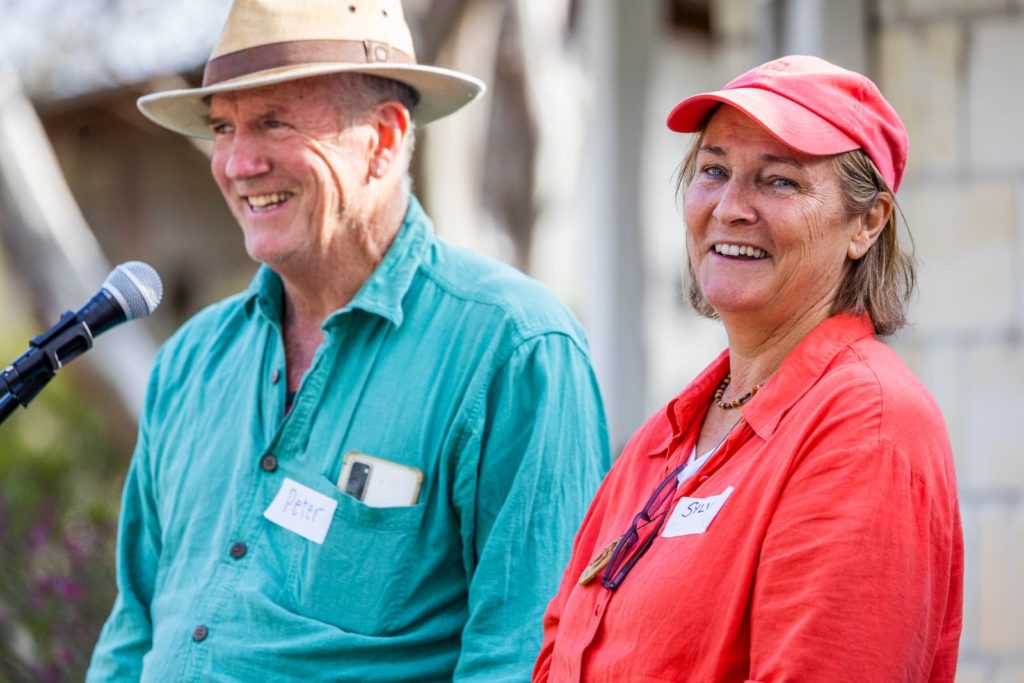
But at much the same time, Peter and I recognised we were getting tired. We were around 60 years of age and the farming lifestyle often tempts you to over-extend yourself physically, and the mental challenge of trying to reduce the environmental decline in this ancient south-coast landscape is enormous. We were looking for many more creative minds to be involved in the long-term stewardship of Wilyun Pools Farm, so we reached out to a network of people to help us brainstorm possibilities.
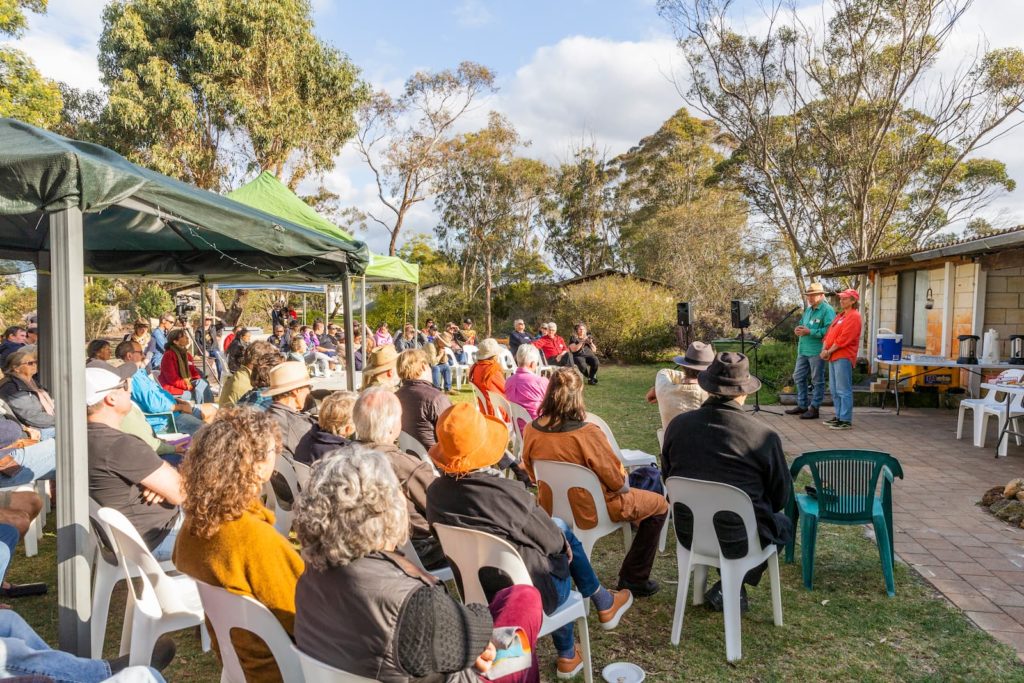
One challenge for Peter and me was to determine a pathway that would provide us with an economic return so we could exit the property while also ensuring that the new owners and managers would care for the land and have economic viability. We wanted to help address climate change, so the evolving carbon market looked an attractive option. However, the ever-changing carbon regulations made it a bit of a minefield for everyday farmers and land managers who were trying to understand the possibilities.
We had other ideas close to our hearts: we wanted to contribute to reconciliation with the Traditional Custodians of the land and support the ethos of land stewardship rather than ownership. Back in 2016, a very significant visit to Wilyun Pools Farm was undertaken by researcher Alison Lullfitz (University of WA), accompanied by local Noongar Elders and an archaeologist. The group was taken to a very special place on the property which is a distinct, cleared and open site amongst bushland near a permanent waterhole. It has remained undisturbed and unchanged for the last 60 years. The Elders immediately recognised it as a significant area and possible ceremonial ground. We were delighted to support it being officially assessed and recorded.
Peter and I had a deep desire to return this site to the Traditional Custodians so it could once again be awakened with song, story and dance through re-building cultural connections with Noongar people. But how were we going to find a pathway where the Traditional Custodians could return to Wilyun Pools Farm, live there permanently and feel safe to carry out long-term cultural management of the land?
To start tackling these challenges, we decided to work closely with two organisations: Carbon Neutral and Gondwana Link. After 18 months of persistent investigation, a pathway for investment in carbon production on Wilyun Pools Farm began to emerge. Around that time, Gondwana Link introduced us to the Wirlomin Noongar Language and Stories organisation, which was looking for a base for its cultural programs.
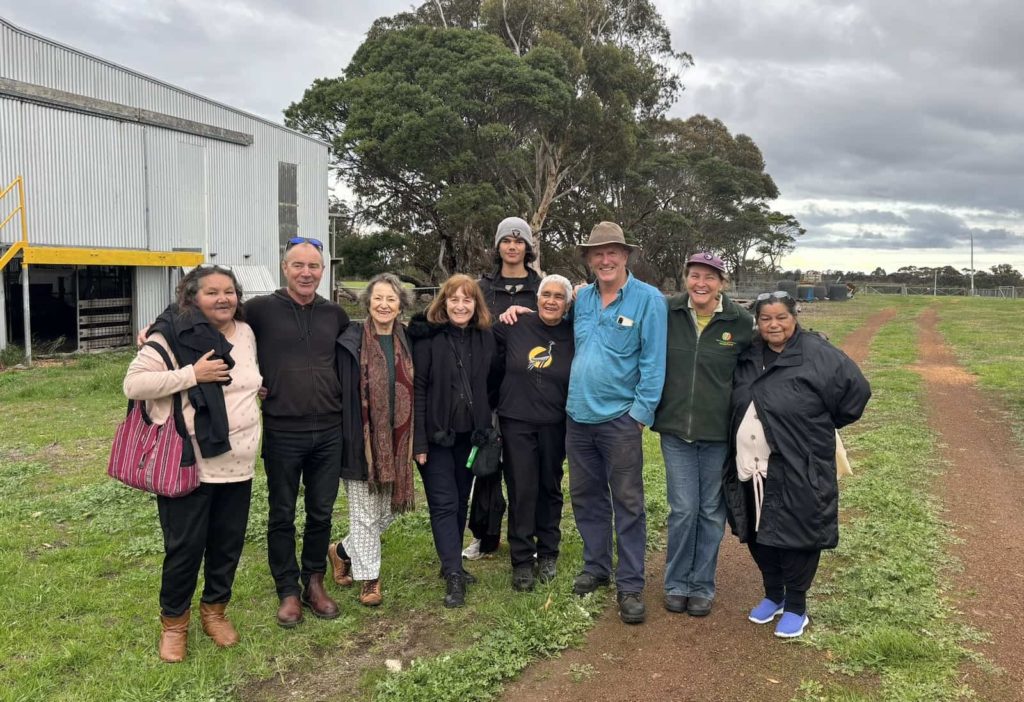
Now, after several extraordinary years in which the team working on solutions grew to three different organisations and a climate investment business, a different and empowering future for Wilyun Pools Farm has begun. Together, we developed a way forward for a shared vision that gives the farm the greatest chance of an ecologically and culturally sustainable future. At the core of this future is Wirlomin Noongar Language and Stories.
Let’s jump into some of the details of the ‘deal’, which are quite fascinating. Here’s Chris Thomas.
Chris Thomas: I’m a director at Wollemi Capital. We’re a climate investment firm based in Sydney and we’re proud and excited to have invested in the Wilyun Pools Farm project.
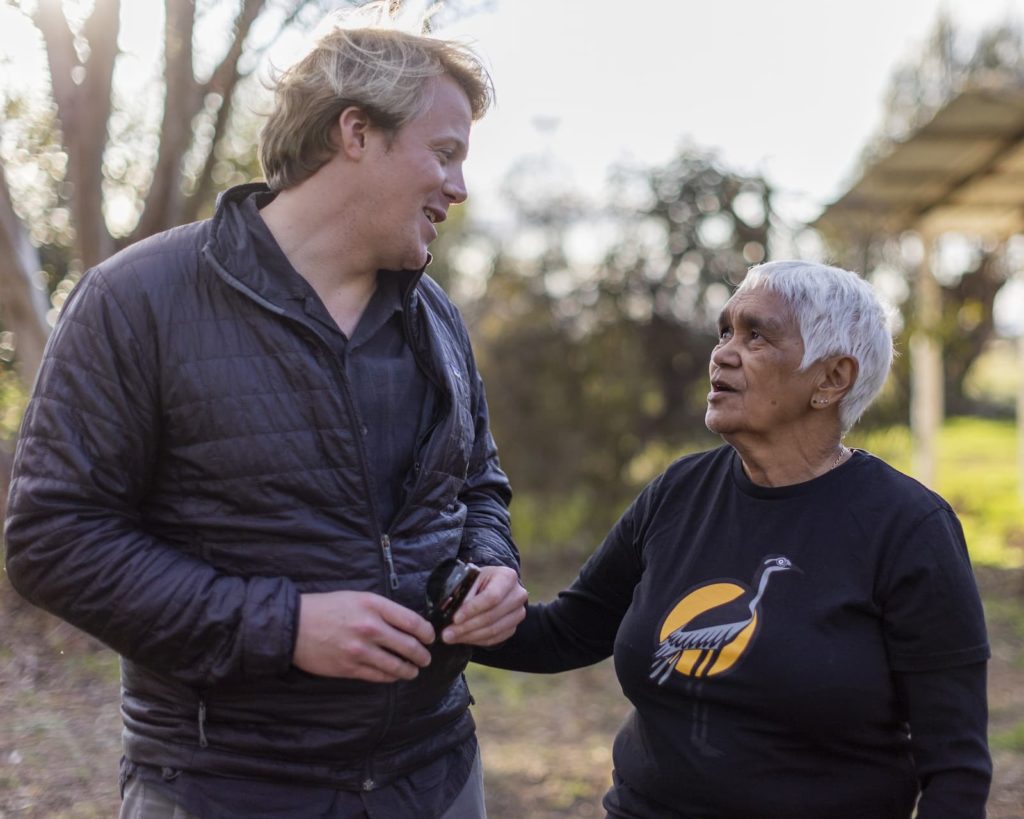
Wollemi Capital invests in businesses and projects that reduce greenhouse gas emissions, across sectors such as energy, transport and industrials, but we also have a big focus on the benefits of restoring nature to draw-down carbon, while also protecting wildlife and habitats.
Wollemi is an investment firm, not a philanthropic or charitable organisation. But we do have a clear purpose, which is inherent in the way we invest. The projects we invest in have to do two things: be commercially and financially viable and able to pay a return to our investors, AND provide a measurable benefit for climate and, where possible, for nature and for people. Wilyun Pools is a prime example of a project where we can see both of those things happening and we’re delighted to be partnering with Carbon Neutral, Gondwana Link and Wirlomin to achieve all of this.
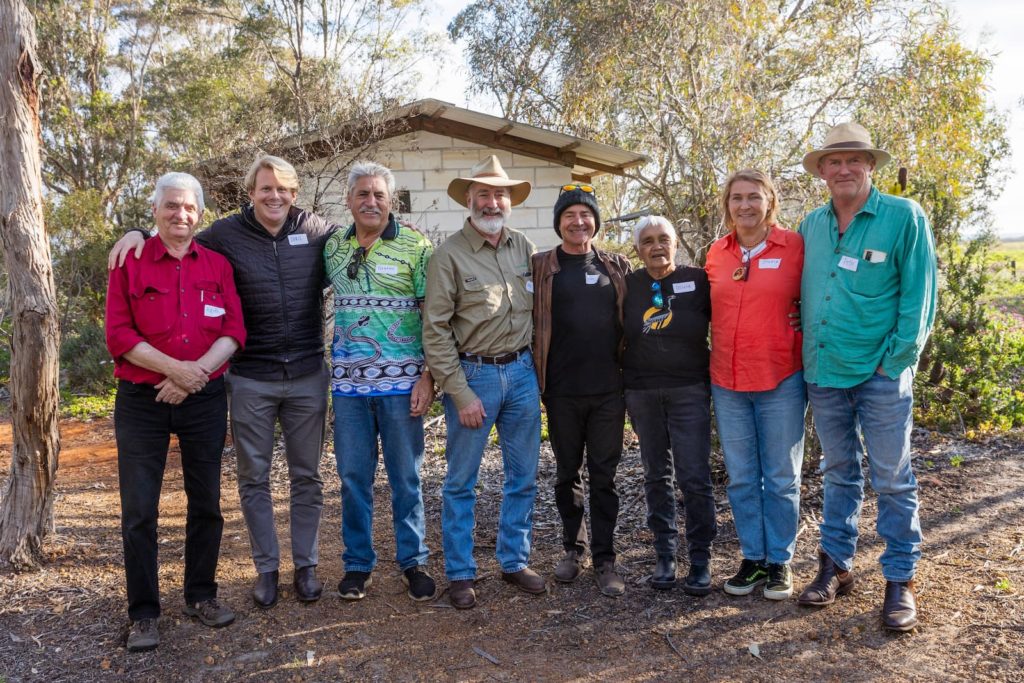
We have invested in the Wilyun Pools Farm project in order to fund two things. The first is the purchase of the land from Sylvia and Peter, and I want to point out that they have been incredibly generous in selling the property below the full market value – which is a key part of what’s made this entire project economically viable.
The second thing we are funding is the carbon project, specifically the planting of biodiverse revegetation as well as blue gums and other species. As these plantings grow, they will capture carbon. Carbon Neutral has registered Wilyun Pools as a carbon project under federal government regulations. This will enable Wollemi to receive carbon credits for the carbon that’s stored in these trees, and to sell those carbon credits to large companies who are looking to decarbonise their businesses or to reduce their carbon footprint. That revenue stream should be enough to pay for investment returns to Wollemi Capital, enable Carbon Neutral to be rewarded for its work, and importantly, provide a modest income stream to Wirlomin and Gondwana Link.
In addition to supporting Wirlomin’s work, through a share of the carbon project revenue, we’re excited about the innovative project structure which has been developed to create access for Wirlomin to this land – both immediately and over the long term. While Wollemi Capital is the majority owner of Wilyun Pools today, a perpetual peppercorn lease is in place between Wollemi and Wirlomin. This means Wirlomin can feel confident and secure in continuing to operate their programs from Wilyun Pools Farm.
But probably the more groundbreaking aspect of the partnership structure that we’ve all pioneered together has been a way to use the Wilyun Pools carbon project to support the transition of this land into Wirlomin’s ownership over time. So, while today Wollemi Capital is the majority landowner of the Wilyun Pools property, we have already transferred a percentage into Wirlomin’s ownership, which is held on trust by Gondwana Link in Wirlomin’s name. So from day one, both Wollemi and Wirlomin are joint owners of this property – we’re both on the title.
The ultimate vision is for the carbon income from Wilyun Pools Farm to enable Wollemi to transfer the entire property into Wirlomin’s hands. We have jointly agreed a series of milestones, documented in a joint Statement of Commitment, that allows this to occur. We hope this creates a clear pathway for Wirlomin to know that over time, if this project succeeds and those milestones are achieved, there is a pathway for them to take freehold ownership of this land.
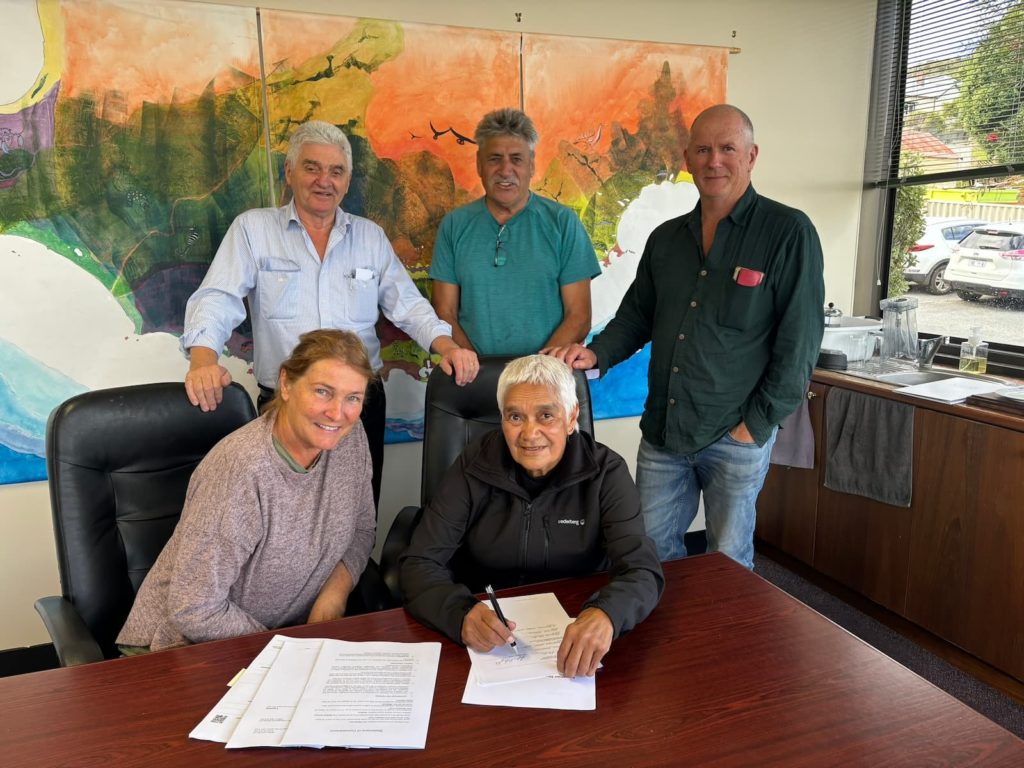
Sylvia: As Carbon Neutral’s representative, Tony Jack had a key role in achieving the new pathway for the farm, including finding the investor Wollemi Capital. Tony’s long-standing connections with many of the people involved in the project helped to establish trust, which is so valuable during a lengthy and complicated process.
Tony Jack: Carbon Neutral has been around for about 20 years, trying to address climate change. Before growing trees for carbon, I was part of a business growing trees for timber, and through that I met Sylvia’s parents here at Wilyun Pools Farm, and Sylvia’s partner Peter was part of my business crew.
Growing trees is a long-term exercise for most human time frames and I’ve been lucky enough to be involved in growing trees for the last 30 years. As my wife says, I can be quite patient at times – a necessary attribute for watching trees grow! The threat to our environment is now so challenging, however, that it’s very important to act quickly. Part of rising to this challenge means getting the best people to look after land. Who are the best people to look after land? In my view, it’s those who have been doing so since time immemorial.
Then there’s something Wirlomin’s Kim Scott said to me some months ago which was along these lines: “We can’t undo what’s happened in the past and our stories now must include that of the wadjela (white person)”. What a generous statement from a Noongar man whose nation has been through such a traumatic dispossession. It was very humbling.
It is highly satisfying to know that a new path is now emerging that will see the care of Wilyun Pools Farm progressively devolve to people of the Noongar nation, the Wirlomin. As well as its celebrated work on language and stories, its capacity to care for Country is growing again.
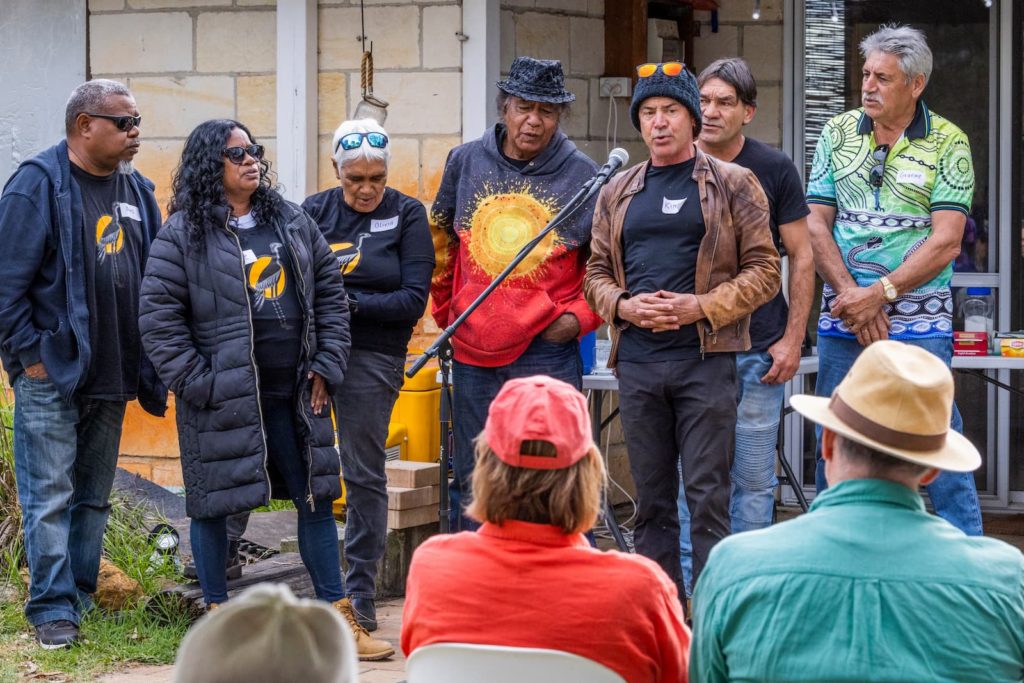
There’s a mixture of plantings happening on the property. Carbon Neutral is pleased to have registered areas of biodiverse environmental plantings under the Federal Government’s ‘environmental plantings method’. These plantings will expand the areas of bush preserved on the farm and enhance Sylvia and Peter’s existing habitat corridor plantings, so wildlife can thrive even more.
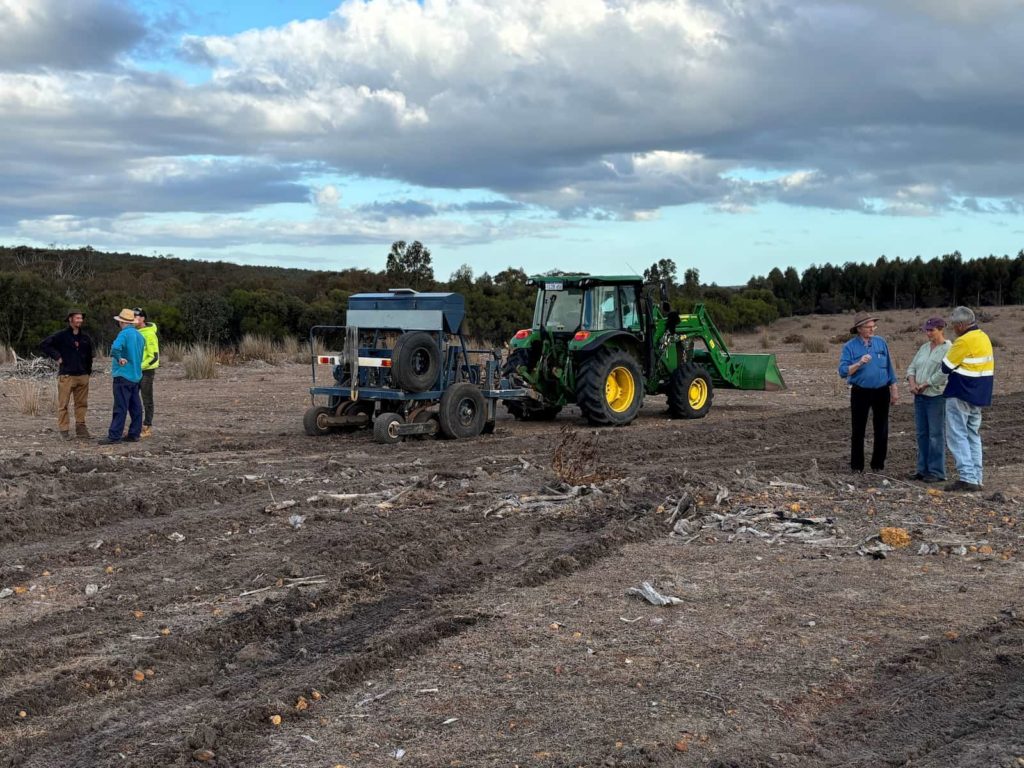
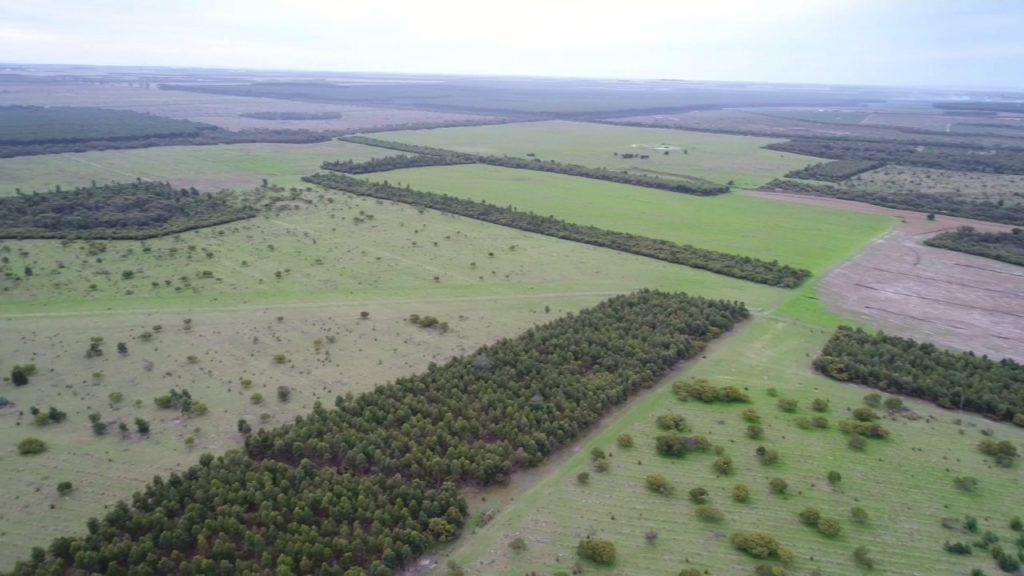
In addition to the biodiverse plantings, areas of Wilyun Pools Farm had previously been used for commercial blue gum forestry and these will now be managed as a combination of permanent eucalypt forests together with saw log production areas. They will be planted in the most biodiverse and environmentally friendly way possible, with relatively wide spacing to allow direct seeding of an understorey of native species. The saw logs will provide extra income and supply timber following the end of native forest logging.
Sylvia: Keith Bradby from Gondwana Link has worked with us throughout this process and helped broker the ‘deal’. ‘Amazing acrobatics’ is how Keith described the process of giving everyone involved the certainty they needed to move forward.
Keith Bradby: I’ll start with the question: why this focus on a significant change in land use and management here at Wilyun Pools Farm? Well, south-western Australia is a biodiversity hotspot of global importance and the band of country that runs from the Pallinup River valley through the Wellstead area to Mount Manypeaks and up to Koi Kyeunu-ruff (Stirling Range) is one of the hottest spots within that hotspot. This area is critically important on a global scale – everything from the amazing kwongan (Proteaceae rich) heathlands to those serene yate swamps.
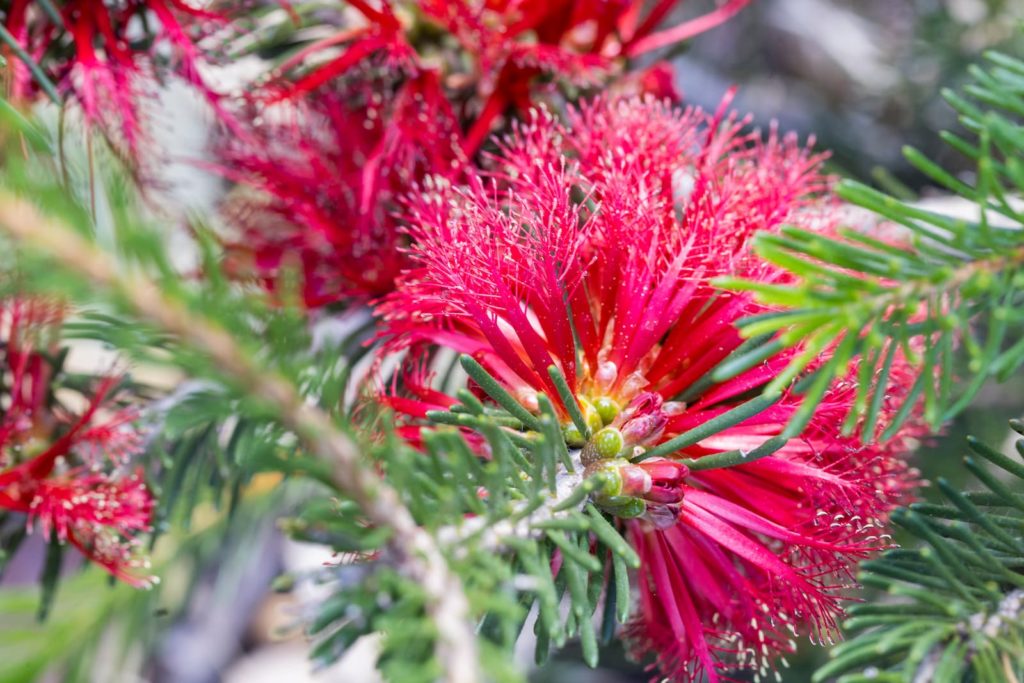
There’s also a contemporary social imperative. In the last three or four decades the reality for many rural areas has been significant population loss, to the point where many small communities are struggling. We can’t let rural Western Australia become just one big paddock with hardly anyone living in it. There’s got to be a diversity of approaches, a diversity of people and incomes, and a diversity of bush. So, we’ve got to get better at how our farming systems work with that diversity. In Wirlomin there are all these really interesting people with a deep connection to this Country and a different type of (old time-tested) knowledge who are bursting with enthusiasm to get back onto land. That’s a significant social opportunity for rural WA and an important part of what we’re achieving here at Wilyun Pools Farm.
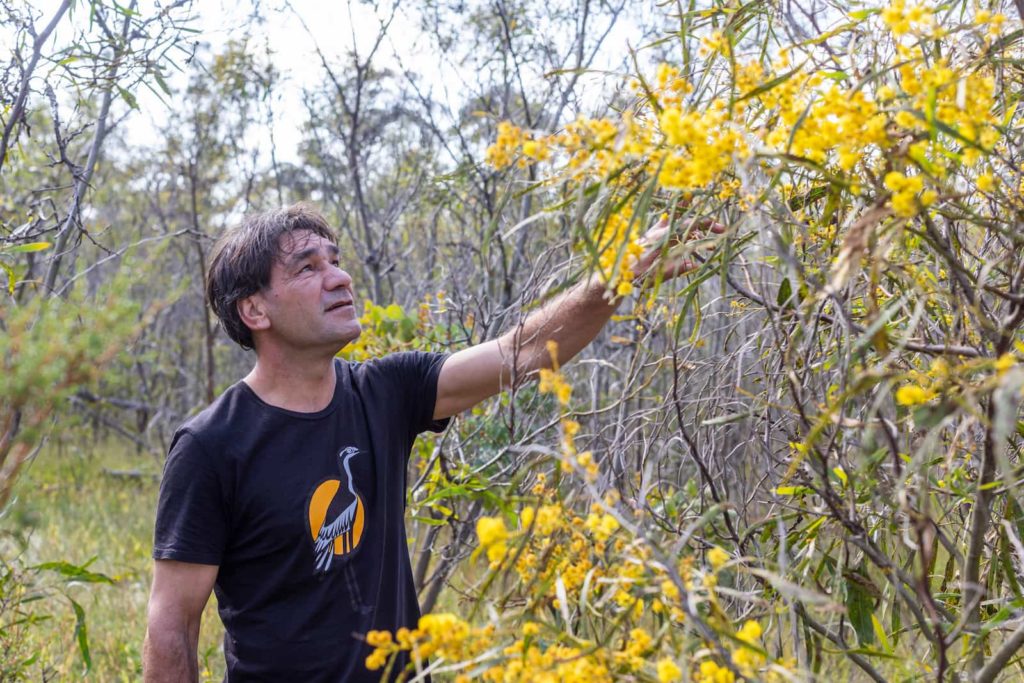
I’ve also been thinking about the integration of benefits. You often see land in rural areas being used for one main purpose – be it a farm to produce crops, a plantation for chips or timber, or a conservation reserve for nature. But land is a precious thing and at Wilyun Pools Farm, through new capital investment and creative arrangements built on goodwill, trust and vision, this one freehold property is yielding ecological benefits, cultural benefits, community benefits and economic benefits. And that’s the way it ought to happen.
Humans get a bad rap for what we’ve done to the planet and we can all get a bit down about that, but you’ve got to live with hope: what is underway at Wilyun Pools is one of the many beacons of hope. It has a future that’s forward-looking and positive – the Country will just get healthier and healthier and healthier. The wonderful process of ecological and cultural renewal that is happening on Wilyun Pools is also underway on some other properties in the region, through a number of local groups. Each of these groups has a unique approach, but real care for Country and people is always at their core.
I find that pretty inspiring and I reckon the people involved are inspired too. It’s been great coming back to visit the Wirlomin team working on Wilyun Pools – Graeme, Boyden, George, Jarrad and Amos – and seeing their big smiles and the energy. Then seeing Sylvia and Peter’s sheer joy at what’s happening. There have been some great displays of generosity of spirit. Sylvia and Peter apologised to Wirlomin for leaving their fridges behind and then apologised for leaving them full of food for the work team! That certainly makes clear that we’re here to help Wirlomin build their capacity and feel comfortable with owning the property and all that it involves.
Sylvia: One of the things I’ve loved about this process is getting to know members of the Wirlomin Noongar Language and Stories organisation, including Graeme Miniter, the Chairperson.
Graeme Miniter: For about 30 years we’ve been doing our projects of restoring cultural knowledge and storylines back on Country, and we were looking for somewhere to use as a base for our cultural activities, programs and camps with our Elders. Keith Bradby, Kim Scott and myself spoke regularly for a few years trying to organise opportunities to get Wirlomin a base where we could do cultural programs on Country. We looked at some other properties further east, but we’ve always said that something closer to Albany would be better so our mob could access their traditional Country more efficiently and get out more regularly. Then Kim got a phone call from Keith out of the blue to say, “Hey, something’s come up, there’s an opportunity.” So those negotiations started at least two and a half years ago and culminated in where we are today. But it’s been a long and hard struggle for us to get our head around it.
We’ve gradually got to this point now where we’ve been able to take on the custodianship of the land with the aim of looking after it, planting back native bush and implementing the Carbon Neutral program. This gives us a great opportunity to get our people back on Country to look after and extend Sylvia and Peter’s good work of looking after this place.
If it wasn’t for Peter and Sylvia and their desire to get this property back in the hands of Noongar people, we may not have got to this point so we will always be in gratitude to them. They played hardball a couple of times with the sale contracts to give us more support than ever to get us to this stage. Our organisation, our family group, is very, very excited for the opportunities this can bring to us, not just the Elders having opportunities to get back on Country, but also being able to develop programs for our youth as part of regenerating our language programs and restoring cultural practices.
It’s already going great bringing the guys out from town – they’ve just taken to it and love it, working on the land, getting that connection and they know it’s going to become their place and they can do something for their Country, with their Elders.
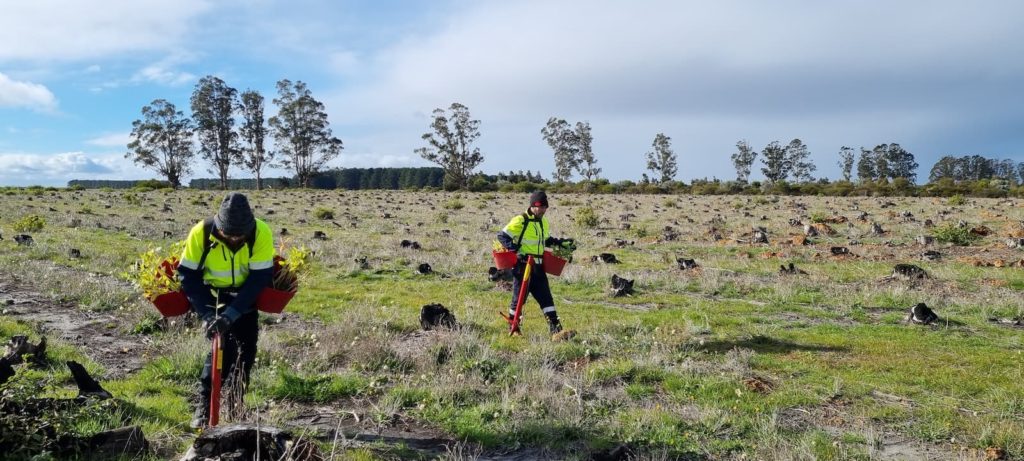
Our guys are experienced tree planters so they’ve already done some supplementary hand planting of blue gums on Wilyun Pools. We’ve also spent several months collecting native seed on the farm and processing that ready for direct-seeding by machine – drying and sieving seed, scarifying the wattle seed, and preparing and smoking the seed mixes for the different soil types. We have built a seed-drying dome to keep things ticking over nicely. Sylvia and a nearby property supplied more seed and seedlings, and the local restoration knowledge has been invaluable. We ended up planting 41 species from the local area. It all involved getting some know-how about what seed to collect, when it’s ready and viable, and how to process them ready for sowing.

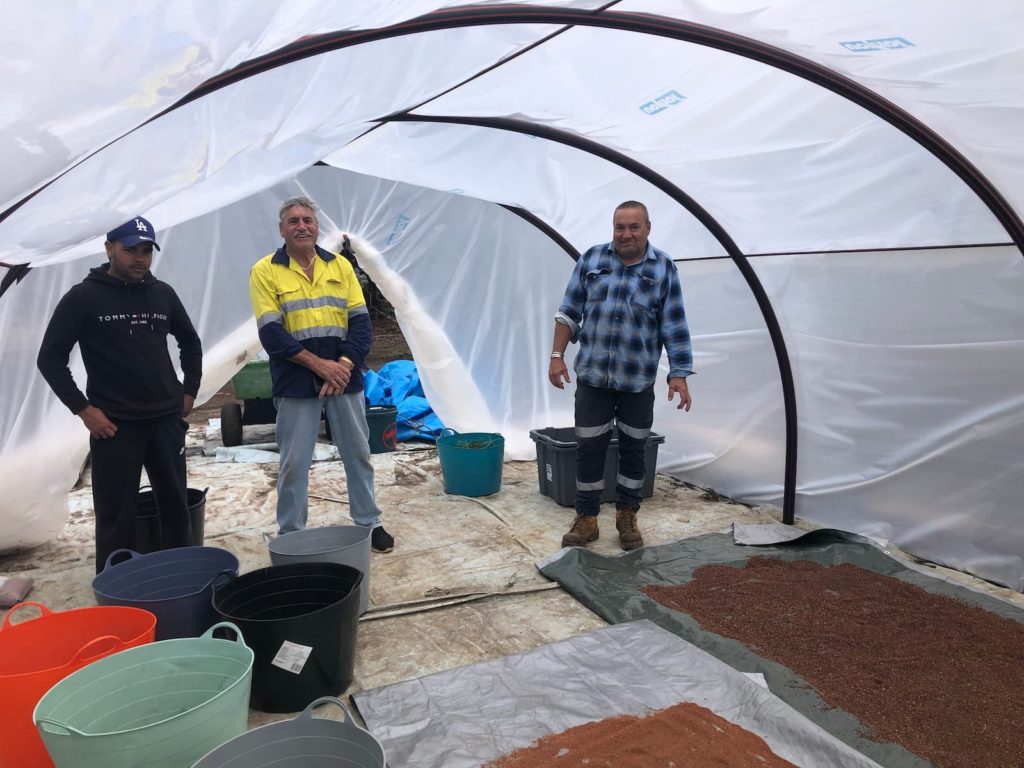
It’s been good working with the other groups – Gondwana Link, Carbon Neutral, Greening Australia and Form Forests – to get those jobs done. The next steps include our Elders coming out to design a camping area for us and we’d like to map out putting some bush foods back on Country.
Sylvia: I came to Wilyun Pools Farm in 1965 when I was eight months old, and I was there for the clearing of much of the bushland. Along with other members of my family, I’ve seen dramatic changes from the close-knit ‘settler community’ I grew up amongst, to today’s high-tech agricultural industry. I am thinking a lot about all that change and what to draw from it.
People ask us “Are you sad to leave the farm?” Yes. Peter and I miss the sights and sounds that make up the unique character of that land: the birds, the plants, the frogs, the honey possums, the owls and even the snakes! We might even miss the sheep. But we also know that as the Traditional Custodians return to the land to which their ancestors had a connection for more than 40,000 years, Wilyun Pools is in good hands to grow into something hopeful and positive.
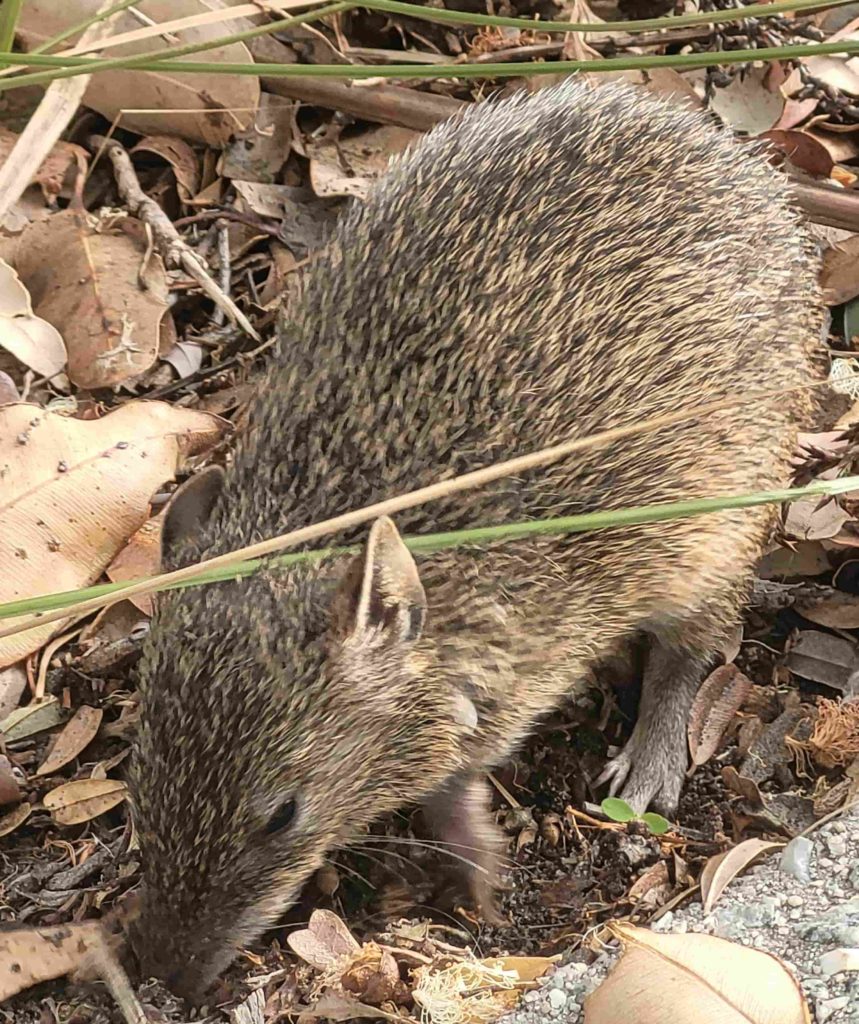
We have been welcomed back by Wirlomin for many visits and have been so impressed with all the tidying up, re-organising and new initiatives. It is invigorating to think how the property will reshape itself under the creative care and management of the Wirlomin alongside Gondwana Link, Carbon Neutral and Wollemi Capital.
THANKS to Sylvia Leighton, Peter McKenzie, Chris Thomas, Tony Jack, Keith Bradby, Graeme Miniter and the photographers. Thanks also to Josephine Hayes for audio recordings and many others for their valuable contributions. Editing by Margaret Robertson, Keith Bradby and Jim Underwood.
FURTHER INFORMATION
Find out about the Wirlomin Noongar Language and Stories Project
Here’s a 2022 story about Sylvia and Peter’s work at Wilyun Pools Farm: Landcare Family Has Passion for Property | Heartland Journeys
